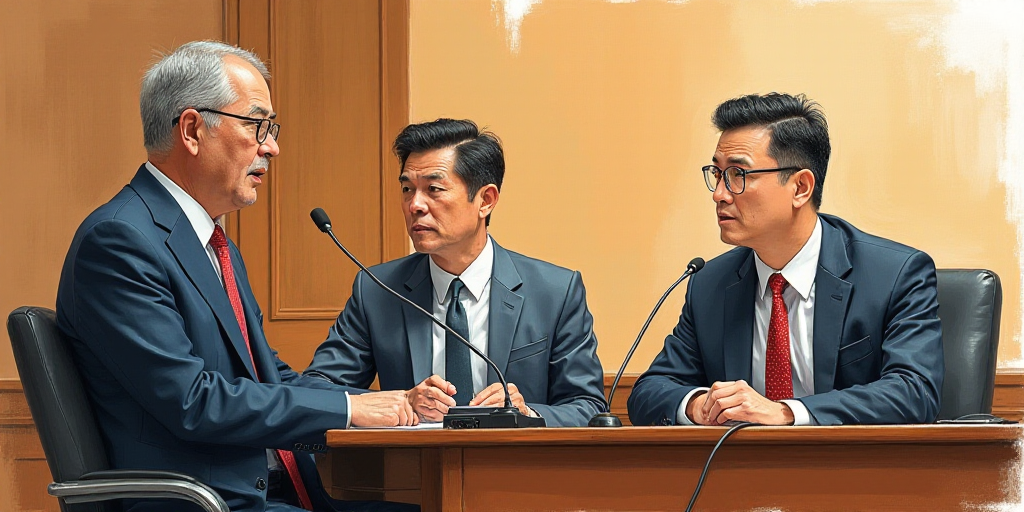Background on Key Figures and Their Relevance
The Ovidio Guzmán case has brought to light the level of mistrust in the bilateral relationship between Mexico and the U.S. regarding security and crime combat efforts, according to experts.
Jeffrey Lichtman, the attorney for Ovidio Guzmán, son of notorious drug lord Joaquín “El Chapo” Guzmán, has criticized Mexico’s President Claudia Sheinbaum and her predecessor, Andrés Manuel López Obrador. He accused them of failing to act against Ismael “El Mayo” Zambada, a prominent member of the Sinaloa Cartel. Lichtman also labeled President Sheinbaum as “the public relations arm” of the cartel.
Ovidio Guzmán López pleaded guilty to four charges in the U.S., including drug trafficking, and agreed to cooperate with U.S. authorities in future cases against drug traffickers. Following this, a new hearing was scheduled for six months in Chicago to detail the agreement between Ovidio and U.S. authorities.
Experts’ Perspectives on the Case
Jorelvy Calixto, an external consultant for Global Thought, believes that the U.S. strategy prioritizes direct judicial agreements with criminal leaders without Mexican government transparency or participation. She also suggests that cases like the money laundering accusations against institutions such as Vector Casa de Bolsa or CI Banco indicate that high-profile capos’ statements may be fueling broader investigations into criminal financial networks.
Alberto Guerrero Baena, a member of Causa en Común’s Guardia Nacional Observatory, emphasizes that the Ovidio case is significant not only for what it may reveal as a collaborator but also for the message it sends: “commit serious crimes, but if you cooperate, you will receive legal benefits, including protection for your close circle.”
Impact on Bilateral Cooperation
Guerrero Baena asserts that the rift between the two countries already exists, as the U.S. government does not trust Mexico’s military or naval forces, nor many government institutions. He suggests that Omar García Harfuch might be the only interlocutor understood by U.S. authorities due to his technical language.
The expert advises Mexico to reassess its security strategy with a technical rather than political perspective and dismantle corrupt structures within customs, armed forces, and government levels that have eroded the credibility of the Mexican state.
Reactions from Mexican Officials
In response to Lichtman’s accusations, President Sheinbaum denied any criminal links during an extraordinary press conference in Culiacán, Sinaloa. She firmly stated that Mexico does not establish relationships of “conspiracy or complicity” with anyone, emphasizing that the Mexican people are aware of this.
Previously, on July 11, Sheinbaum criticized the “lack of coherence” in U.S. anti-drug policies, pointing out the contradiction of labeling drug cartels as “terrorist organizations” while negotiating judicial agreements with their leaders, referring to the Ovidio Guzmán case.
Key Questions and Answers
- What is the Ovidio Guzmán case about? Ovidio Guzmán López, son of Joaquín “El Chapo” Guzmán, pleaded guilty to drug trafficking charges in the U.S. and agreed to cooperate with authorities against other drug traffickers.
- Who are the key figures involved? Jeffrey Lichtman, Ovidio Guzmán’s attorney; Claudia Sheinbaum, President of Mexico; Andrés Manuel López Obrador, former President of Mexico; Ismael “El Mayo” Zambada, Sinaloa Cartel leader.
- What are experts’ perspectives on the case? The case highlights mistrust between Mexico and the U.S. in security and crime combat efforts, with experts suggesting that the U.S. strategy prioritizes direct agreements with criminal leaders without Mexican government transparency.
- How has the case affected bilateral cooperation? Experts assert that a rift already exists between the two countries, with the U.S. government reportedly lacking trust in Mexican military and naval forces.
- What were the reactions from Mexican officials? President Sheinbaum denied any criminal links and criticized U.S. anti-drug policies for their perceived lack of coherence.






